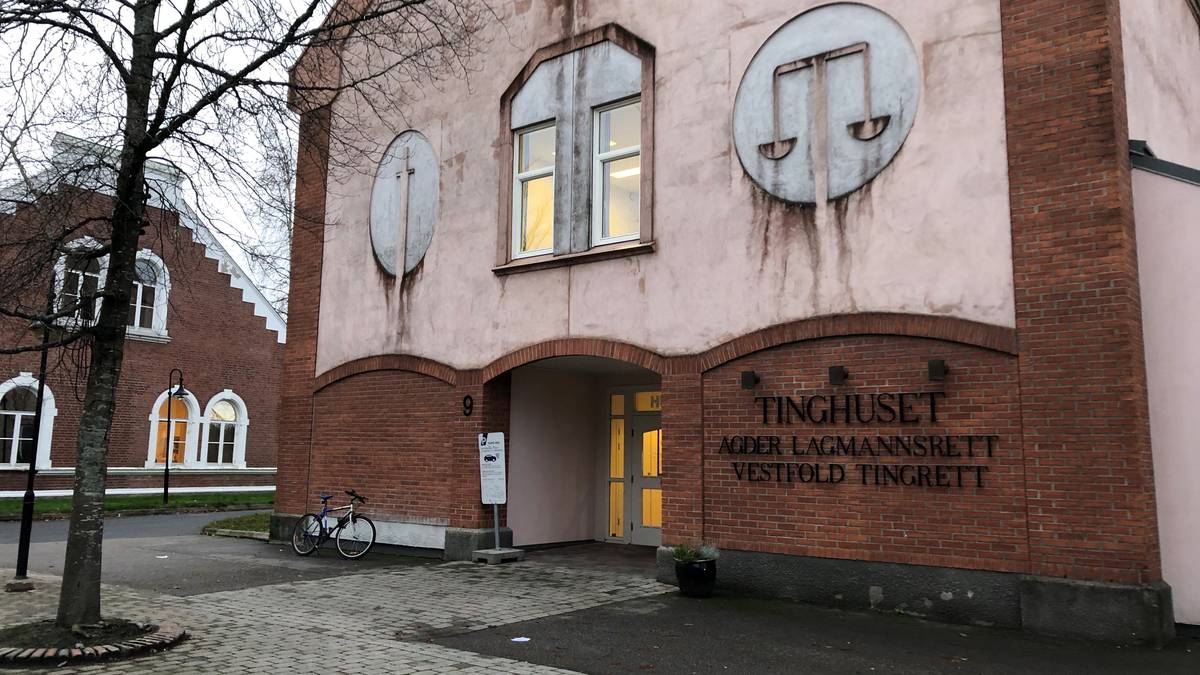The Alpaslan 2 hydroelectric dam in Turkey, the ninth largest dam, has been in operation for a year and a quarter. SZ Byznys was the first media to visit the completed work, which is also the largest dam built by a private investor in the country.
–
Energo-Pro bought the power plant already under construction to Jaromír Tesař. The total investment eventually reached the amount of 550 million US dollars (12.6 billion crowns), of which over 300 million (7 billion crowns) were invested in the completion of Energo-Pro. Part out of pocket, the rest funded by MUFG (Mitsubishi UFJ Financial Group, Japanese banking holding company, editor’s note) and the Czech Export Bank. A large part of the loan was guaranteed by the export insurance company EGAP.
–
We are considering changing the license at this hydropower plant to a so-called hybrid plant and adding about 42 megawatts of installed capacity in solariums to the land located below the plant.
–
“We are satisfied with the existing portfolio of seven hydropower plants in Turkey. As for further development in this country, we are considering changing the license at this hydropower plant to the so-called hybrid and adding about 42 megawatts of installed capacity in solariums to land located under the plant, “said Jakub Fajfr, Group Executive Director for strategy and development, with the share of solar panels in the power plant’s power would be about 15 percent.
–
According to him, this would mean energy for another 20,000 households in Turkey and for his group an annual benefit of profit before depreciation, tax and interest deduction (EBITDA) of almost 5 million euros.
–
The investment, which Jakub Fajfr estimates at 30 to 35 million euros, is to start by the end of 2023. “We have requested a change in the license. One office has already approved it for us, we are waiting for the statement of the other office and then we would continue with the preparation of the project itself, “said one of the heads of Energo-Pro for SZ Business.
–
The company would like to take advantage of the good sunny conditions in this part of the country, where you can get after a two-hour flight from Istanbul to the city of Muş, the capital of the province of the same name in Eastern Anatolia, and then about half an hour by car to the mountains.
–
At peak times, the performance would be aided by added photovoltaics, the current would not have to be produced from water, outside the peaks, the water just retained from the dam would be used for production.
–
Energo-Pro
- The owner is billionaire Jaromír Tesař, according to Forbes, the 16th richest Czech in 2021.
- It owns and operates 39 hydropower plants in 4 countries – Bulgaria, Georgia, Turkey and the Czech Republic.
- The total installed capacity is 1,138 MW and last year’s electricity production reached 3.3 TWh. In addition to hydropower, it also sells electricity to end customers, with 2.5 million clients in Bulgaria and Georgia.
- The group employs almost 10,000 people.
- It also includes the manufacturer of turbines and machines for hydropower Litostroj Group.
——
Apart from Turkey, Jaromír Tesař’s group is also considering increasing the installed capacity in Bulgaria by investing in other renewable sources, especially solar power plants. It also wants to build hydroelectric power plants in Colombia, and has currently started a 20 MW project.
–
The group also performed well in the first quarter of the year. According to the economic results provided by SZ Business today, consolidated revenues in the first quarter of 2022 they reached 400.4 million euros, ie 83 percent more than in the first quarter of the previous year. The increase was mainly in the electricity distribution and supply segment in Bulgaria, mainly due to a significant increase in the average sales price of electricity.
–
Operating profit before depreciation and taxation reached EUR 60 million in the first quarter of 2022, an increase of 55 percent compared to EUR 38.7 million in the first quarter of 2021. Both main segments of the group – both the production and distribution segments – contributed to the increase. and electricity supply.
–
The first unit of the Turkish Alpaslan 2 was put into operation in October 2020. In 2021, it produced 609 gigawatt-hours. “This corresponds to the annual consumption of approximately 213,000 Turkish households. For an idea, it is necessary to take Hradec Králové twice, “explains Jakub Fajfr on the dam of the waterworks.
–
According to him, the power plant has been making money on itself since last year. Its contribution to group EBITDY was EUR 40 million.
–
So far, the dollar tariff is guaranteed for 10 years. Does this mean a guarantee that you cannot spend at least the first decade in Turkey?
–
Yes, it is such a guarantee for investors that their investment will pay off in the first ten years. In Turkey, we operate five more hydropower plants for which this so-called YEKDEM tariff expired in 2020, and for which the current selling price is around 1,200 Turkish lira per megawatt-hour, which corresponds to about $ 82.
–
Dollar tariff
Power plants put into operation before 30 June 2021 can participate in the scheme, which allows them to draw a purchase tariff of USD 73 / MWh in the first 10 years of operation.
–
- In addition, in the first 5 years of operation, the power plant receives an additional 13 USD / MWh for the so-called local content bonus. That is, the turbine parts were made in Turkey.
- Every year, the company can decide (in November / December) whether it wants the power plant to be in this YEKDEM system in the next year, or whether it can sell at market prices.
- Historically, until 2015, market prices were higher than the YEKDEM tariff, the same happened during the second half of 2021.
- The current market price in Turkey is 2000-2500 Turkish lira per 1 MWh (120-150 USD / MWh).
- For existing unconventional power plants that are not in the YEKDEM regime, a ceiling on electricity prices of 1,200 Turkish lira per 1 MWh has been introduced since April, and is adjusted monthly depending on the development of FX and inflation.
——
But last year, the average price was thirty to forty dollars. In Turkey, as in other European countries, electricity prices have risen since the second half of last year.
–
Turkey is worried that business conditions may change suddenly at any time. What guarantee do you have? Aren’t you worried that your business in Turkey will fail?
–
There is always a risk, but we are not afraid. We do not have a guarantee that there will be no change, however, in the area of energy regulation, this statement about the change of conditions does not apply in my opinion. The YEKDEM tariff has been on the market since 2005 and the conditions for existing power plants have not changed during its validity. If we compare it with Europe, with the Czech Republic, we also had investments in solar power plants and then there were retroactive changes in the tariff, or in additional taxation. It’s not here.
–
In Turkey, on the other hand, many companies, Western corporations, have been broke their teeth. Including Czech. How do you explain that you are doing well here?
–
We approach this market completely differently than other companies that participated in privatization and went to joint ventures with Turkish holding companies or influential families due to operating in Turkey. We have been operating independently on the market since 2006, we have Turkish management and we can be more perceived as a local company.
–
In addition, our focus is on hydropower. We did not want to invest in distribution or thermal power plants. Compared to them, the water ones have a much higher margin. If firms invested in conventional production sources, acquisitions of distributions, then they could face a mismatch between their original investment and financing in foreign currency and revenues, which could in turn be in local currency. And it has weakened in recent years.
–
Nevertheless, in general, would you label doing business in Turkey as risky for foreign companies?
–
I consider investments in our sector to be safe. If it is a manufacturing company that will collect in Turkish lira, then the investment may be risky for it, or let’s say less repayable than it expected.
–
Is it possible to build at all in a country where inflation is over 73%?
–
Yes, he will. Firstly, we built in the period 2018–2020, when inflation was not yet so high, and secondly, the price of construction work did not rise as much as inflation, ie in dollar terms, our investment was not expensive.
–
In general, how does your business affect not only inflation, but the economic situation of the country in general?
–
Indirectly. Some costs are rising in Turkish lira. For example, wages. But when you have high inflation, it does not mean that your wages are rising in the same proportion. And above all, energy prices are not directly dependent on the Turkish lira. On the other hand, current macroeconomic developments are not helping the foreign investment community, which has reservations about the development of certain economic indicators, thus reducing Turkey’s attractiveness for investment.
–
How is the whole Turkish Energo-Pro division doing?
–
Last year, when we could already count these new projects, the Turkish companies in the group generated over 60 million euros in EBITDA. A year earlier, it was about 24 million euros. An even better result can be expected this year, for two reasons: Electricity prices have been rising since mid-last year, selling the remaining five hydropower plants in the country. These are the ones whose dollar tariff ended at the end of 2020. In addition, compared to last year, we expect better hydrology, ie higher production.
–
Play the whole interview with Jakub Fajfr directly from the Alpaslan 2 hydroelectric power plant in Turkey in the introductory video.
—


